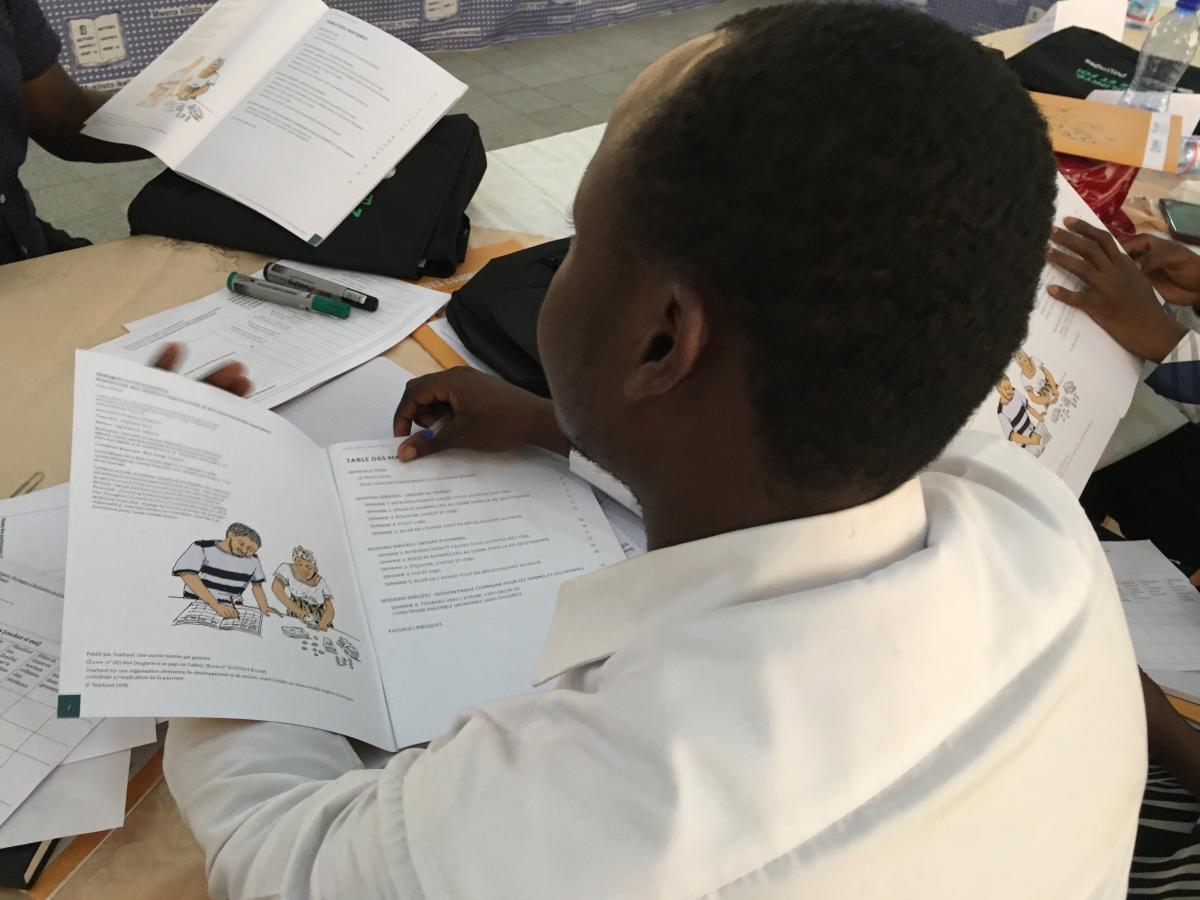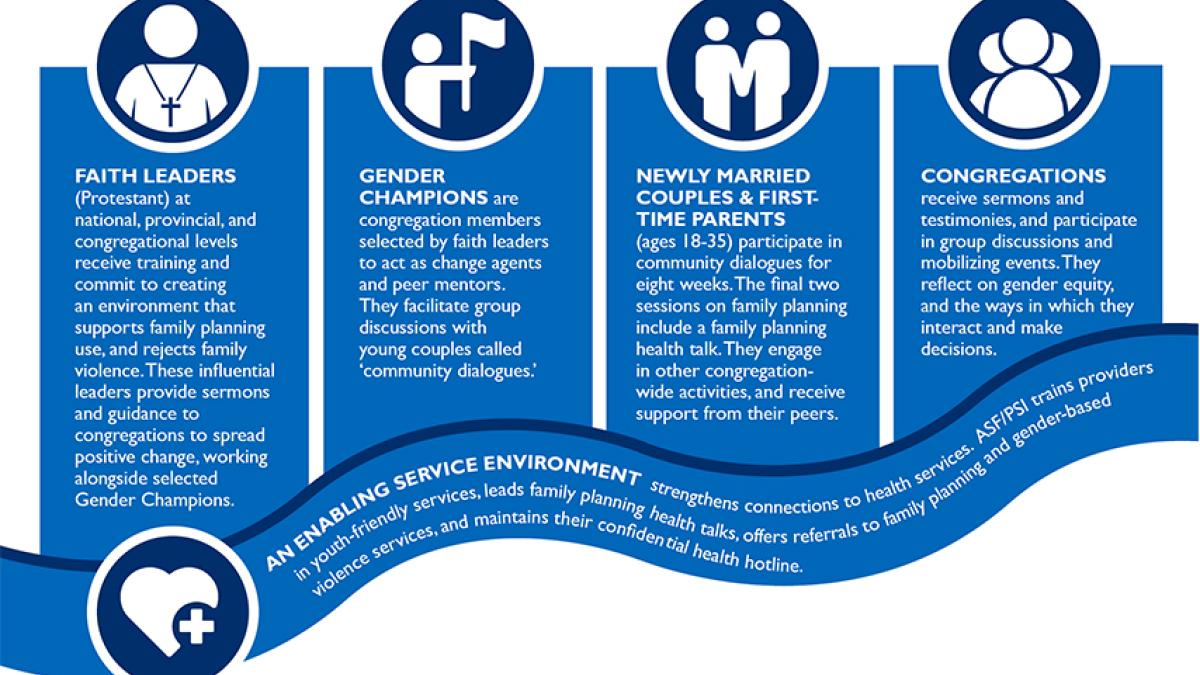
“My eleven year old daughter, always very curious, first saw me fetching water, and she secretly told her mom: 'dad has changed, dad has changed completely.' It was encouraging to me.”
Kinshasa, DRC—Elisée used to wake up every night to fetch over 50 gallons of water to use for laundry, dishes, bathing, etc. And her husband, Alain, simply thought that that was part of her role as his wife. But little did they know when they decided to participate in USAID’s Transforming Masculinities program that he would soon be sharing her burden and helping to fetch water.
Transforming Masculinities is an intervention that aims to reduce violence among couples and promote healthy timing and spacing of pregnancy. When a woman bears children too closely together, too early or too late in life, the health of the mother and baby are at risk. Transforming Masculinities is an evidence-based approach to promote gender equality and positive masculinities within faith communities. It is based upon the understanding that spiritual beliefs and faith leaders are part of the structure that shapes social and gender norms, and focuses on prevention and response to sexual and gender-based violence. Through this approach, USAID will work with over 1,000 newly married couples and first-time parents, engaging with them through faith leaders and other congregation members. The young couples participate in a series of trainings and discussions, unpacking their beliefs about the acceptability of intimate partner violence and the use of family planning in small group discussions called “Community Dialogues.” This work is helping to create an environment that supports positive change, builds new norms that condemn violence, improves couple communication, and promotes gender equity.

“Helping my wife to fetch water all started with a scientific realization on my part, when I figured that when my wife carries at least eight jerry cans of about 25 liters each, that meant that she had to carry a minimum of 50 gallons each night, to take care of household chores,” said Alain.
“This seemed to me that I was punishing her--that is too much for one person to bear. I once tried to carry just half of that, and I got so tired, but Elisée never complained. Every night, she got up to fetch water.”
Alain realized that he needed to help her for them to become more united as a couple. This was reinforced by their Transforming Masculinities group, where they studied a Biblical passage and talked about the meaning of unity as a couple. “The topic had a strong impact on us,” reflected Alain.
In addition, Elisée was able to share the benefits of healthy timing and spacing of pregnancies in the women’s group she leads. “Before it was a little bit difficult for me to explain the reasons it’s important to space births healthily...After receiving the training, I am now able to explain to others the different methods so that they can make an informed choice,” said Elisée.
When asked about the impacts of the program in their lives, Elisée and Alain were emphatic. “It was my eleven year old daughter, always very curious, who first saw me fetching water, and she secretly told her mom: 'dad has changed, dad has changed completely.' It was encouraging to me.” Elisee added, “Before, I woke up to fetch water and my husband stayed asleep in bed because he was did not feel concerned by this...we are now two to fetch water at night.”
And Elisée’s women’s group has noticed the change, too: “they noticed how my Alain was helping me, taking care of some work like looking after our baby while I was doing other duties and they were surprised. Some of them kept telling me: ‘you people are better, there’s change.’”
From November 25th through December 10th, we're highlighting stories as part of the 16 Days of Activism Against Gender-Based Violence. Join the conversation via #16days.
Learn More
- Overview brief: Transforming Masculinities
- Read about our efforts to prevent and respond to gender-based violence
- Follow USAID Global Health on Twitter and Facebook
Transforming Masculinities, developed by Tearfund, is implemented by USAID’s Passages Project.
